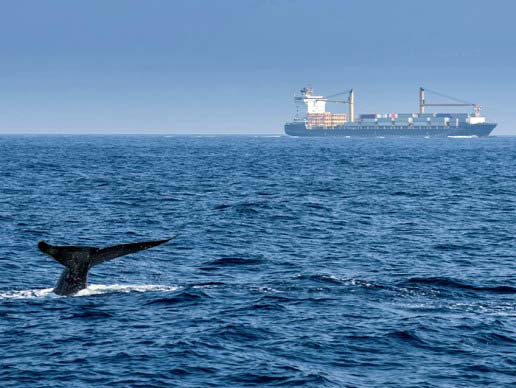The Sustainable Shipping Initiative (SSI) a multi-stakeholder collective bringing together leaders across the maritime ecosystem, has become the latest organisation to link up with the Mærsk Mc-Kinney Møller Centre for Zero Carbon Shipping.
The two organisations have signed a Knowledge Partnership Agreement, committing to a long-term strategic partnership to accelerate the maritime industry’s decarbonisation efforts. SSI is a multi-stakeholder initiative that brings together leading and likeminded organizations across the maritime ecosystem to advance environmental, social and socio-economic sustainability in the shipping industry. SSI’s 16 members include shipowners, operators and managers; cargo owners; classification societies; environmental and social non-profits; and service providers.
Through the partnership, the two organisations will share knowledge and best practice to accelerate the transition towards zero carbon shipping sustainably, by ensuring that pathways to zero emissions (from alternative fuels to improving energy efficiency) consider sustainability implications beyond CO2. Among other things, SSI and the Centre will jointly work on developing standards for life cycle analysis (LCA) of alternative fuels, which is a key element in the transition.
Centre CEO Bo Cerup-Simonsen said: “We are on the same mission, and we can increase our common impact through collaboration. The SSI has a proven track record in driving change through cross-sectoral collaboration, and by combining our strengths, knowledge and determination to accelerate the transition, we can be even more effective in driving real change in the maritime industry.”
Andrew Stephens, Executive Director, SSI, said: “Decarbonising shipping sustainably requires addressing many interlinked challenges – from land-based fuel supply chains to the materials used for shipbuilding, to route optimisation that helps address externalities like poor air quality in ports. These issues can only be tackled effectively through partnering and collaborating with others, and we at the Sustainable Shipping Initiative look forward to working with the Centre and its community of members and stakeholders in the pursuit of zero carbon shipping by 2050.”
With 100.000 ships consuming around 300m tons of fuel annually, global shipping accounts for around 3% of global carbon emissions, a share that is likely to increase as other industries tackle climate emissions in the coming decades. Achieving the long-term target of decarbonisation requires new fuel types and a systemic change within the industry. Shipping is a globally regulated industry, which provides an opportunity to secure broad-based industry adoption of new technology and fuels. To accelerate the development of viable technologies a coordinated effort within applied research is needed across the entire supply chain. Industry leaders play a critical role in ensuring that laboratory research is successfully matured to scalable solutions matching the needs of industry. At the same time, new legislation will be required to enable the transition towards decarbonisation.



